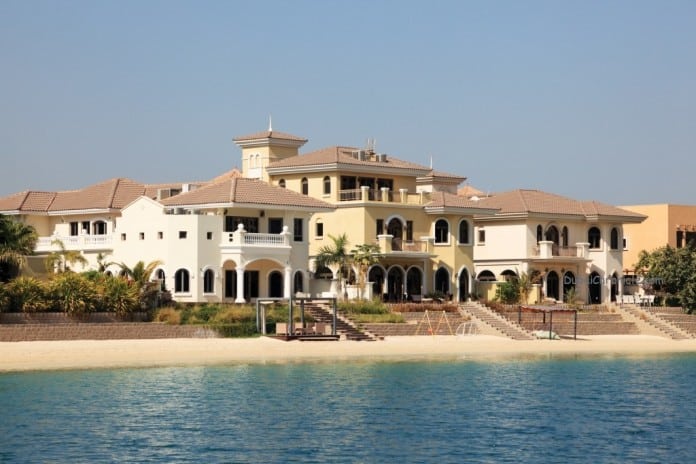[ad_1]
The life story of Arnon Milchan, billionaire Hollywood mogul and secret agent, could have been made for the silver screen: He produced blockbusters like “Pretty Woman,” “Mr. & Mrs. Smith” and “Bohemian Rhapsody,” and also made a fortune from arms dealing, including covert exploits procuring weapons for Israel, his native country.
A decade ago, he went public about his work for Israeli intelligence, landing himself in a spot of trouble. The government of the United States, where he had long been resident, balked at renewing his 10-year visa after revelations he and others made about one of his companies’ illegal export from the United States to Israel in the 1980s of devices that could serve as nuclear triggers.
But a longstanding relationship he had with Benjamin Netanyahu, then and once again the Israeli prime minister, proved to be useful.
Mr. Netanyahu successfully lobbied senior American officials on Mr. Milchan’s behalf to reinstate his visa, according to an Israeli indictment against Mr. Netanyahu.
On Sunday, Mr. Milchan will take the stand in court as a star prosecution witness against Mr. Netanyahu, who is on trial in three separate but interlocking corruption cases. In one, he has been charged with breach of trust over his dealings with Mr. Milchan.
Among other things, Mr. Netanyahu has been accused of intervening twice with U.S. officials to secure Mr. Milchan’s visa as part of a gifts-for-favors affair known in Israel as Case 1000.
According to prosecutors, Mr. Milchan lavished Mr. Netanyahu and his wife, Sara, with gifts worth hundreds of thousands of dollars.
Most of those gifts were expensive cigars and pink Champagne delivered to the prime minister’s official residence in Jerusalem and his private household in the seaside town of Caesarea — often on demand, according to testimony in court from Mr. Milchan’s personal assistant and his driver. On occasion, Ms. Netanyahu received jewelry too.
Mr. Netanyahu insists there is nothing illegal about accepting gifts from an old friend and has denied all wrongdoing. If it is found that receiving those gifts created a conflict of interest, he could end up serving prison time. Mr. Milchan has not been charged with any crime.
The trial has turned into a showcase of the mutually beneficial nexus of money, power and influence in Israel that acquaintances of Mr. Milchan say he thrived in.
“Arnon is a person who is always anxious to be at the center of attention,” said Ehud Olmert, a former Israeli prime minister who has known Mr. Milchan for decades. “He needs to be the mover and fixer. He approaches people who are in a position of influence — he made an effort to come close to you if you were a person of consequence.”
Mr. Olmert said that after he resigned from office under a cloud, the Hollywood producer dropped him as a friend.
“Once you are not at the center of events you are not that interesting,” said Mr. Olmert, who was ultimately convicted of bribery and served a prison term in a case unrelated to Mr. Milchan.
Mr. Milchan, 78, owns an estate in the upmarket village of Beit Yanai overlooking the Mediterranean, as well as other property in Israel.
But he has refused to testify in person in an Israeli court, and will do so by video conference from Brighton, England, near where he is residing.
His lawyers recently cited medical reasons for his refusal to travel to Israel. According to court documents, Mr. Milchan has not set foot there for at least six years, since he was interrogated by the Israeli police investigating Mr. Netanyahu’s corruption case.
At one point in the investigation, Mr. Milchan became a suspect in what the police viewed as a potential bribery case. But Israel’s attorney general found no grounds to charge him.
Mr. Milchan’s representatives declined to answer questions, instead providing a statement emphasizing that Mr. Milchan was “appearing only as a witness and is not suspected of any wrongdoing” and would “cooperate as much as necessary.”
“Milchan is the key witness in Case 1000,” Tamar Almog, the legal affairs analyst for Kan, Israel’s public broadcaster, said in an interview. “His testimony is critical for understanding the relationship between the two men, and if it was a system, as described in the indictment,” she said, referring to allegations of a gifts-for-favors arrangement.
Mr. Netanyahu is also accused of favoring Mr. Milchan by pushing for a tax exemption to be extended and for a telecoms merger that prosecutors say would have secured an investment opportunity for him.
Mr. Netanyahu’s determined efforts to get Mr. Milchan’s 10-year visa renewed involved at least two urgent calls to then Secretary of State John Kerry, according to a person with knowledge of the conversations who spoke on the condition of anonymity in order to discuss private communications.
Mr. Netanyahu has argued that he was bound to help Mr. Milchan with his visa because of his contributions to Israeli security and to the American economy.
Born in 1944 in Rehovot, in what would become the state of Israel four years later, Mr. Milchan inherited his father’s failing fertilizer business and turned it into a multimillion-dollar agrochemical company. Forbes estimates his net worth at about $3.3 billion. He is married to Amanda Coetzer, a South African former professional tennis player.
From testimony given in court last year by Hadas Klein, Mr. Milchan’s longtime personal assistant in Israel, a picture emerged of a man who counted his pennies and was increasingly concerned about the expense and legality of providing the Netanyahus with a steady supply of luxury goods.
Ms. Klein and the driver would usually deliver the Champagne and Mr. Milchan would bring the boxes of cigars in a shoulder bag, Ms. Klein said.
Mr. Milchan would ask friends who were traveling to buy him duty-free cigars, hoping to save money, Ms. Klein testified, and at one point he tried to buy a cheaper brand for Mr. Netanyahu, she said, until Mr. Netanyahu complained about them.
According to the indictment, the personal relationship between Mr. Milchan and Mr. Netanyahu dated to 1999 and the gift-giving lasted from 2011 to 2016.
Mr. Milchan loved having an open door and an open line to the Netanyahus, Ms. Klein said in court, adding, “He loved saying he was friends with the prime minister.” But he was relieved, she testified, when, in 2014, James Packer, an Australian billionaire who admired Mr. Netanyahu, began to share the cost of the cigars and Champagne.
Mr. Milchan’s work for Israeli intelligence was first made public in an unofficial biography, “Confidential: The Life of Secret Agent Turned Hollywood Tycoon Arnon Milchan,” written by Meir Doron and Joseph Gelman, and published in 2011. The book revealed that at least through the mid-1980s Mr. Milchan was a full-fledged operative for Lakam, Israeli intelligence’s now defunct Science Liaison Bureau.
Mr. Milchan, the book said, supervised government-backed accounts and front companies that financed covert Israeli operations outside the country, including buying components to build and maintain Israel’s nuclear arsenal.
Mr. Milchan has said he was not aware that the components were being exported without the required licenses and has not been accused of wrongdoing.
But he appeared intent on dispelling his image as an arms dealer who profited from large commissions in his transactions with Israel.
In 2013, he appeared in a popular Israeli documentary program and bragged about his contributions to Israeli security, starting from when he was recruited in the 1960s.
“Do you know what it is to be a kid of 20-something, and the country lets him be James Bond?” he said. “Wow. That’s action, that’s exciting.”
Flying the show’s host around in a private jet and giving her a tour of his art-filled Malibu mansion, he insisted that the commissions he made went back to Israel and said he had repeatedly risked his life for his country.
Mr. Olmert, the former Israeli prime minister, said of Mr. Milchan, “He has great love for Israel. But to say he was asked to risk his life is to take it one step beyond reality.”
Myra Noveck contributed reporting.
[ad_2]
Source link





















